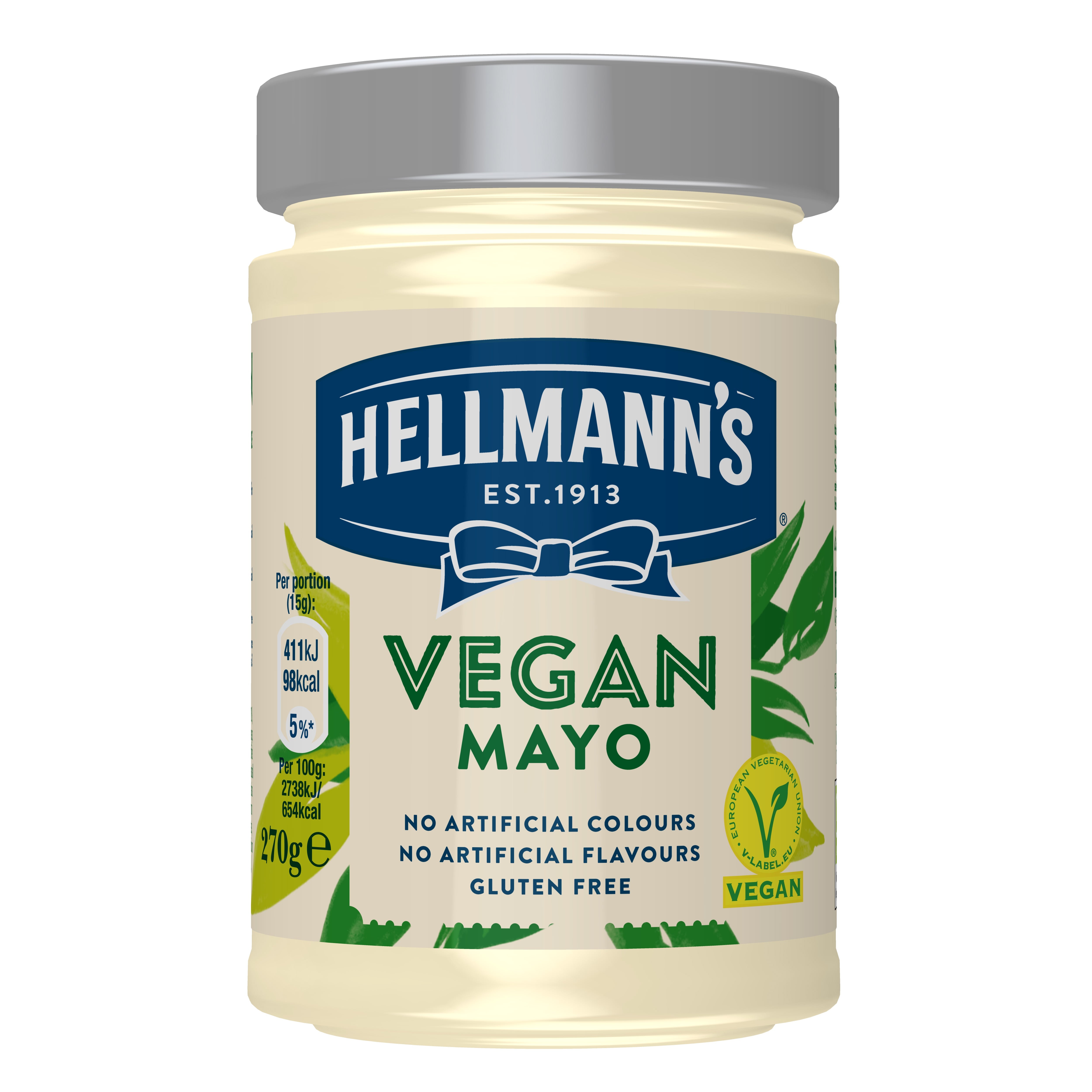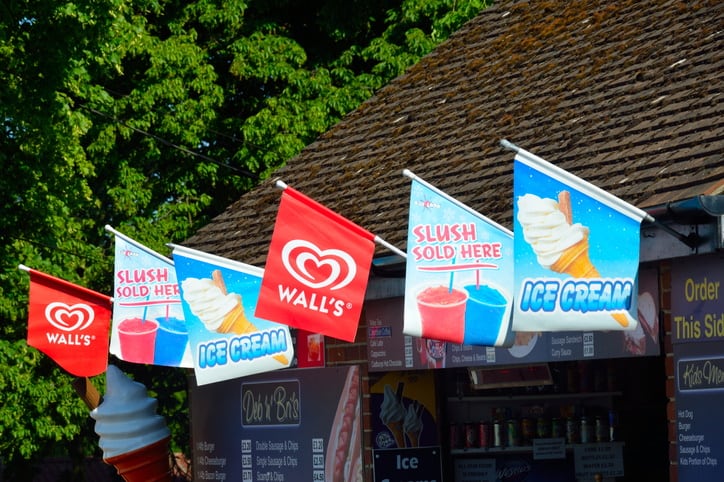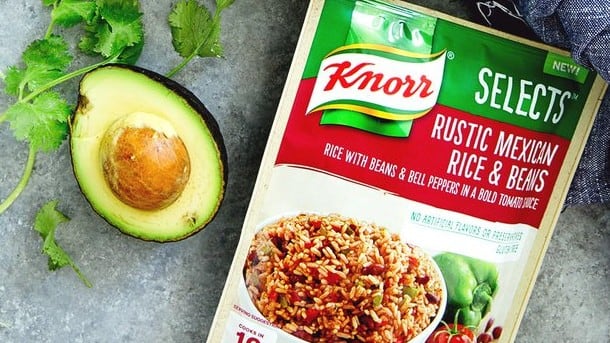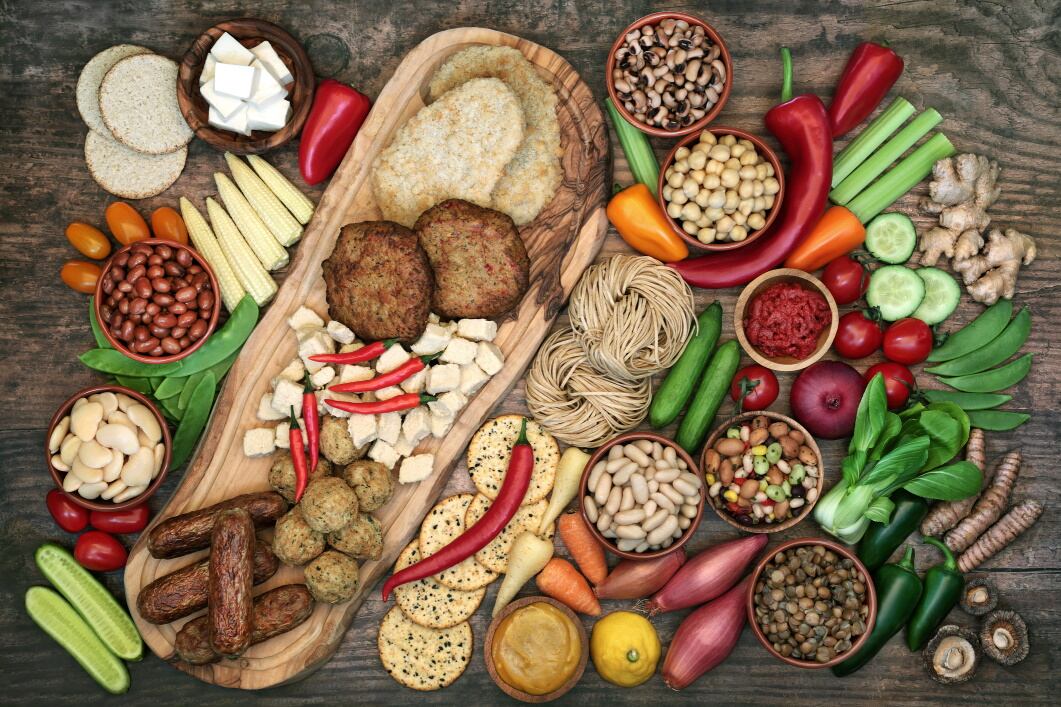The global food system ‘isn’t working’, Unilever said as it set out its plans to support a transition to more sustainable production through its ‘Future Foods’ initiative.
The Knorr-to-Lipton maker believes the food sector faces significant challenges relating to population health and the greenhouse gas emissions associated with food production.
Unilever noted 2bn people worldwide are overweight, while 1bn people go hungry. At the same time one-third of food is thrown away, according to the UN’s FAO. Meanwhile, more than 20% of all greenhouse gas emissions are produced by the food industry. A reduction in food related GHGs will be necessary to meet commitments made under the Paris Agreement aimed at limiting global heating to 2˚C.
For Unilever, part of the answer lies in making healthier, plant-based options more accessible, affordable and appetizing.
“It’s not up to us to decide for people what they want to eat, but it is up to us to make healthier and plant-based options accessible to all,” Hanneke Faber, President of Unilever’s Foods & Refreshment Division, explained.
Two strategies for plant-based growth
The European food giant wants to make plant-based foods the ‘new normal’ because, it said, reducing our meat consumption is ‘essential’ to solving the double crises of climate and health.
The company believes this shift is needed because animal agriculture is the second largest GHG emitter after fossil fuels. The food giant also linked animal agriculture to deforestation, water and air pollution and biodiversity loss.
Outlining its ambition, Unilever pointed to UK research from the Committee on Climate Change, which suggested moving to plant-based diets could cut an individual’s carbon footprint by as much as 35%.
According to Unilever, it has a dual-pronged approach to increasing consumption of plant-based products. “We are accelerating our plant-based portfolio in two key ways,” Unilever told FoodNavigator.
“Firstly, through our rapidly growing disruptor brand, The Vegetarian Butcher, which we acquired two years ago. Since then, we’ve rolled it out across 30 countries – and many more to come. We supply Burger King’s plant-based whopper in 26 countries in Europe and the Middle East, and we’re now launching plant-based nuggets.

“Secondly, through developing alternatives to some of the most loved Unilever food products such as dairy and egg alternatives. We’ve already launched Vegan Ben & Jerry’s range, Magnum Vegan, Vegan Cornetto, and Hellmann’s Vegan, all of which have been very successful. We’re the biggest ice cream and mayonnaise player in the world and we will continue to invest in vegan version of the classics we know consumers love.”
Unilever told us that the second part of this strategy is important because the food sector needs to boost the number of flexitarians adopting a mixed diet if it is to move the needle on animal protein consumption.
“In the past, plant-based diets were mostly consumed by the relatively small market of vegetarians and vegans, however the growth in the plant-based sector has largely been driven by the mainstream emergence of the flexitarian consumer,” a spokesperson explained. Research from Barclays, for example, found that 92% of plant-based meals in the UK are consumed by the 22m non-vegan flexitarians in the market.
Appealing to flexitarians ‘absolutely’ depends on delivering organoleptic properties that consumers expect, the spokesperson confirmed.
“We believe taste and texture experience is the way to convince meat and dairy consumers that with our products they don’t have to miss out on anything. That’s why our scientists are constantly working to develop more delicious plant-based alternatives.”
Unilever’s current projects include:
- Dairy Replacement taste & texture research, which, the spokesperson said, has been ‘one of the core competitive capabilities of our R&D team for 5+ years’.
- Exploring meat alternatives with The Vegetarian Butcher.
- Developing other sustainable forms of protein, such as microalgae in partnership with UK start-up Algenuity.
“We believe that we’ll continue to see flexitarians opt for more plant-based options,” a spokesperson for the group observed. However, that’s not to say that the number of vegetarians and vegans isn’t also expected to grow. “Add to that an increased number of vegetarians and vegans, plant-based diets are consumers’ response to a combination of ethical, environmental and health concerns. In dressing specifically, Hellmann’s Vegan Mayo has been hugely successful and was named as one of Nielsen’s top 25 Breakthrough Innovations in Europe for 2020.”
Plant-based will therefore play an important role in Unilever’s decision-making around what product innovations to push. With a new €1bn plant-based sales target, the company said we can expect a ‘wider range’ of vegan and vegetarian options from its brands.
Highlighting recent success stories, Unilever noted this isn’t just good for the planet – its ‘good for business’. Two years after acquiring The Vegetarian Butcher, the plant-based meat brand has been extended into 30 countries. Hellmann’s vegan mayonnaise is now available in 33 countries. Ben & Jerry’s now has seven non-dairy alternatives and Magnum offers a vegan ice cream option.
Progress in ‘positive nutrition’
Developing more plant-based options is also better for population health, the multinational suggested. And nutrition is the second string to Unilever’s Future Foods strategy.
The company wants to help people transition towards healthier eating through reformulation and by developing products that offer a positive nutritional profile.
Unilever plans to increase the number of products it sells with ‘the highest nutritional standards’, including benchmarks for salt, saturated fat, sugar and calories.

The company pointed to a 110 calorie-cap on children’s ice cream and said it has lowered the salt, sugar and calories in a ‘growing number of products’, including a 30% sugar reduction in Lipton Ice Tea.
By 2022, Unilever wants to extend reductions so that 85% of its foods will help ensure consumers do not intake more than 5g of salt per day, by 2022. And 95% of its ice creams will not contain more than 22g of sugar, and 250 kcal per serving, by 2025.
Positive nutrition is about more than taking out fat, salt and sugar. According to the World Health Organization, 2bn people are affected by micronutrient deficiency.
To address this, Unilever intends to double the number of products that can deliver positive nutritional value by 2025 through ‘impactful amounts’ of vegetables, fruit, proteins or micronutrients such as zinc, iron, omega-3 and iodine.
When asked, Unilever declined to detail the overall proportion of its portfolio that currently meet these standards. However, Unilever did tell us: “We have committed to provide more than 200 billion servings with at least one of the five key micronutrients, vitamin A, vitamin D, iodine, iron and zinc by 2022. So far, we’ve provided nearly 60 billion servings. We’ve achieved this through dietary diversification (providing products with nutrient-rich ingredients), as well as the use of iodised salt instead of regular salt. We add essential nutrients to products that are consumed on a regular basis.”

Alongside expanding its range of nutritionally-dense plant-based options, brands like Knorr and the recently acquired Horlicks offer platforms that lend themselves to fortification efforts.
“We sell more than 164m servings of fortified products every day, including seasonings, bouillons, soups and Mealmakers from our Knorr brand. These servings provide at least 15% of the recommended daily amount for nutrients.
“We recently completed the acquisition of Horlicks, the leader in its category in India. Horlicks Classic contains nine nutrients (vitamin B6, B12, C, D, copper, folic acid, iron, selenium and zinc) which are scientifically proven to support immunity. It’s also fortified with 21 micronutrients. Aside from Horlicks, our Hellmann’s Real Mayonnaise in India is fortified with vitamin A and D.”
Positive nutrition efforts will be developed to meet the nutritional needs of local populations in order to maximize impact, Unilever's spokesperson continued.
“[The strategy] will be tailored to local population needs. In Indonesia for instance, with our brand Royco (Knorr in most countries) we are about to launch bouillon that is fortified with iodine, a micronutrient that much of the population there is lacking. The brand is present in 80% of households in Indonesia, so we have an opportunity to make a big difference.
“Our focus has been driven by the portfolio we have and where we can make most impact, for example, through frequency of consumption, and that has been with iodine (iodized salt), followed by iron. Around 2.5bn people a day use a Unilever product – this presents us with a huge opportunity to have a positive nutritional impact all around the world.”
Raising the bar on food waste
Unilever also revealed that it plans to take further action to tackle food waste within its own operations.
As part of the Champions 12.3 initiative, Unilever had already committed to halving food waste in its direct operations, from factory to shelf, by 2030. The company has moved this deadline forward to 2025.
These new targets sit within Unilever’s existing efforts to reduce the damage the current food system inflicts on natural resources. Standing global commitments include eliminating deforestation from its supply chain, halving the use of virgin plastic by 2025 and achieving net zero emissions for all products by 2039.

